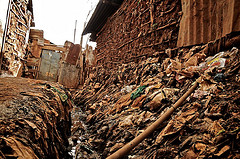
As we mentioned in Tuesday’s post and in our book, youth retreats are often organized by faith-based organizations, but they don’t have to be. You can run weekend sessions about any topic under the sun – or even beyond with a space-themed retreat weekend.
Normally on Thursdays we like to give you a youth work session plan idea that you can do, or one that will at least springboard your own session plan ideas. Today, we’ll be linking to a ‘pre-packaged’ youth retreat which includes all the information you might need to do an entire weekend of sessions and activities about its topic.
Organizations you can partner with
On Tuesday, we mentioned weekend retreat themes like learning about famine through World Vision’s 30-hour famine weekend, or about slum conditions by undertaking a weekend of Slum Survivor. The best part of these weekend youth retreat ideas is that they’re applicable to almost any kind of youth work you do. You can focus on any angle you wish, whether it’s faith-based or not. They also include all the items you might need to run their weekend-long program.
Slum Survivor currently have three different types of programming that you can download: Trafficking, Street Children and the Original Slum Survivor.
The Slum Survivor program also includes additional challenges to make the entire experience even more realistic.
- Paper Bag Making
- Literacy & Health
- Road Building
- Toy Making
Each provides its own list of resources and instructions within each youth work session plan idea – you can download these directly from the Slum Survivor site. You even get support in completing sponsorship forms, permissions slips, feedback forms and in dealing with the press.
One of the benefits of a Slum Survivor weekend is that your youth can use it to raise money to help others. Slum Survivor also want to know about your own weekend projects, so register your event with them so they can highlight what your youth did during the weekend youth retreat.
Update: If you live in Australia you can also access TEAR’s Slum Survivor events.
If you’ve run one of these projects before (or are planning to), we’d love to hear from you as well. How did your youth find it? Were they impacted by what life must be like for those less fortunate than them? Did you run any additional activities alongside the resources provided by Slum Survivor? Let us know in the comments below.
You can also connect with us by:
- Signing up to receive our posts via email
- Following us on Twitter
- Liking us on Facebook
- Signing up to our RSS feed
 Q: How do I know if a youth retreat is the right thing for my youth program?
Q: How do I know if a youth retreat is the right thing for my youth program?
 It’s
It’s